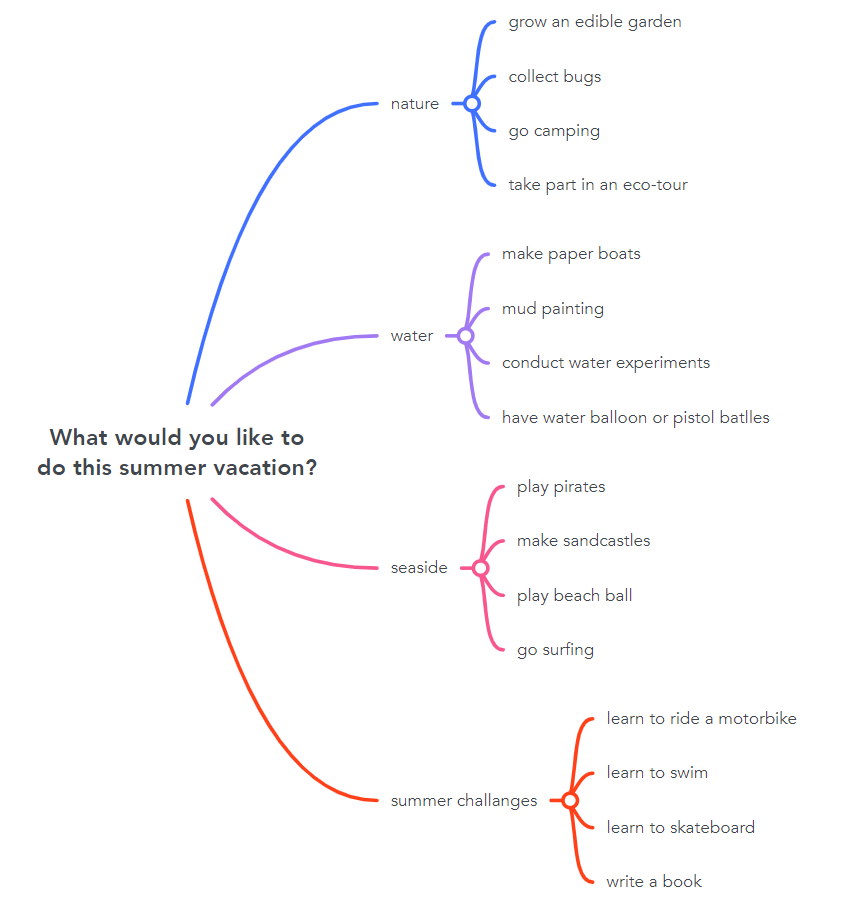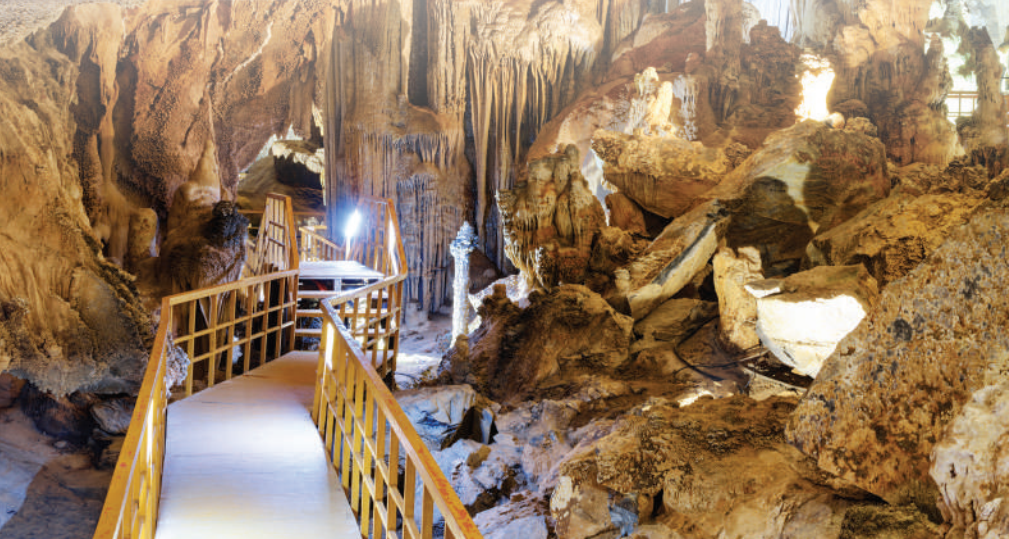Giáo án điện tử Unit 10: Ecotourism | Bài giảng PPT Tiếng Anh 10 Global Success
Với Giáo án PPT Unit 10: Ecotourism Tiếng Anh 10 sách Global Success sẽ giúp thầy cô dễ dàng biên soạn và giảng dạy bằng giáo án điện tử hay POWERPOINT Unit 10: Ecotourism.
Chỉ từ 400k mua trọn bộ Giáo án Tiếng Anh 10 Global Success bản PPT đẹp mắt (Chỉ 70k cho 1 bài giảng bất kì):
B1: Gửi phí vào tài khoản 0711000255837 - NGUYEN THANH TUYEN - Ngân hàng Vietcombank (QR)
B2: Nhắn tin tới zalo Vietjack Official - nhấn vào đây để thông báo và nhận giáo án.
Xem thử tài liệu tại đây: Link tài liệu
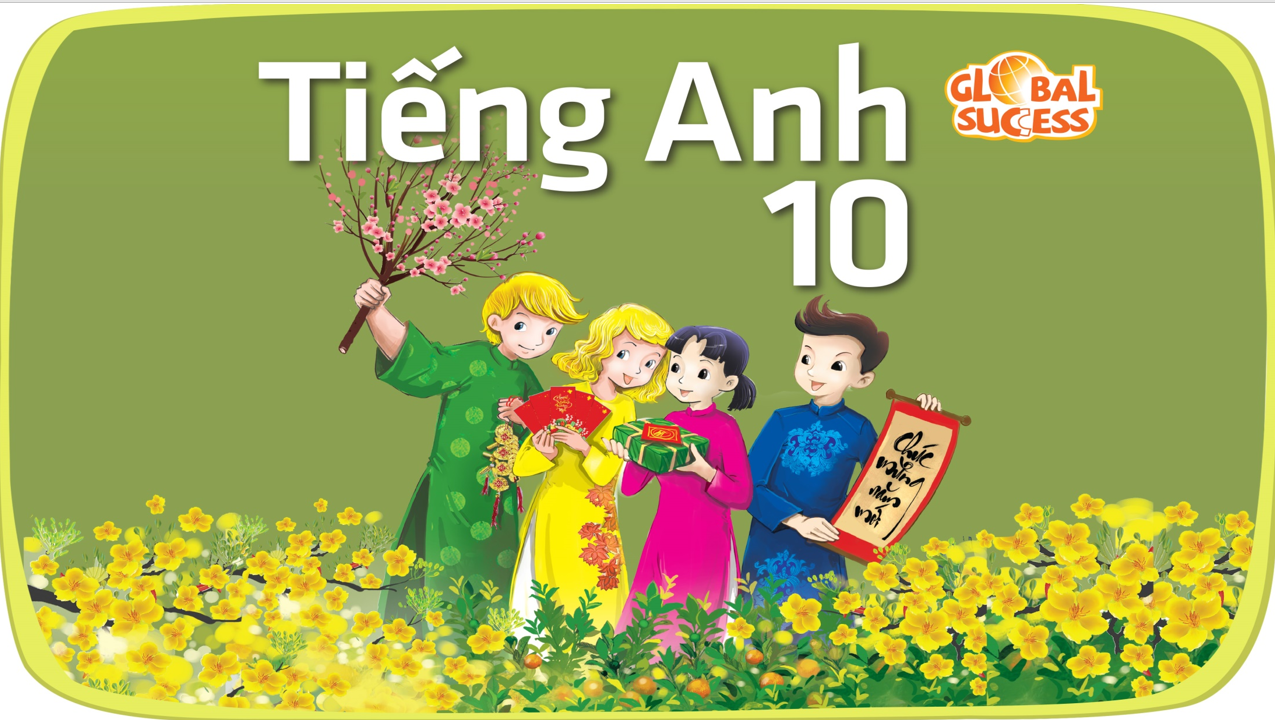
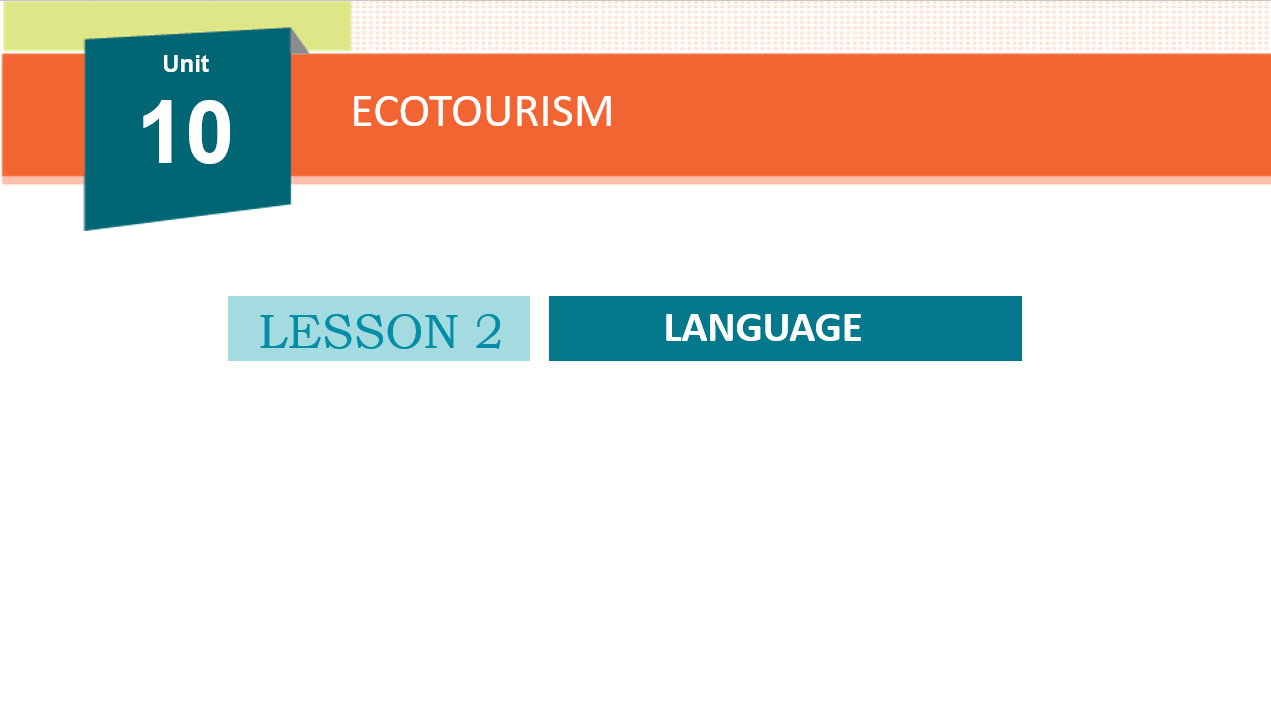
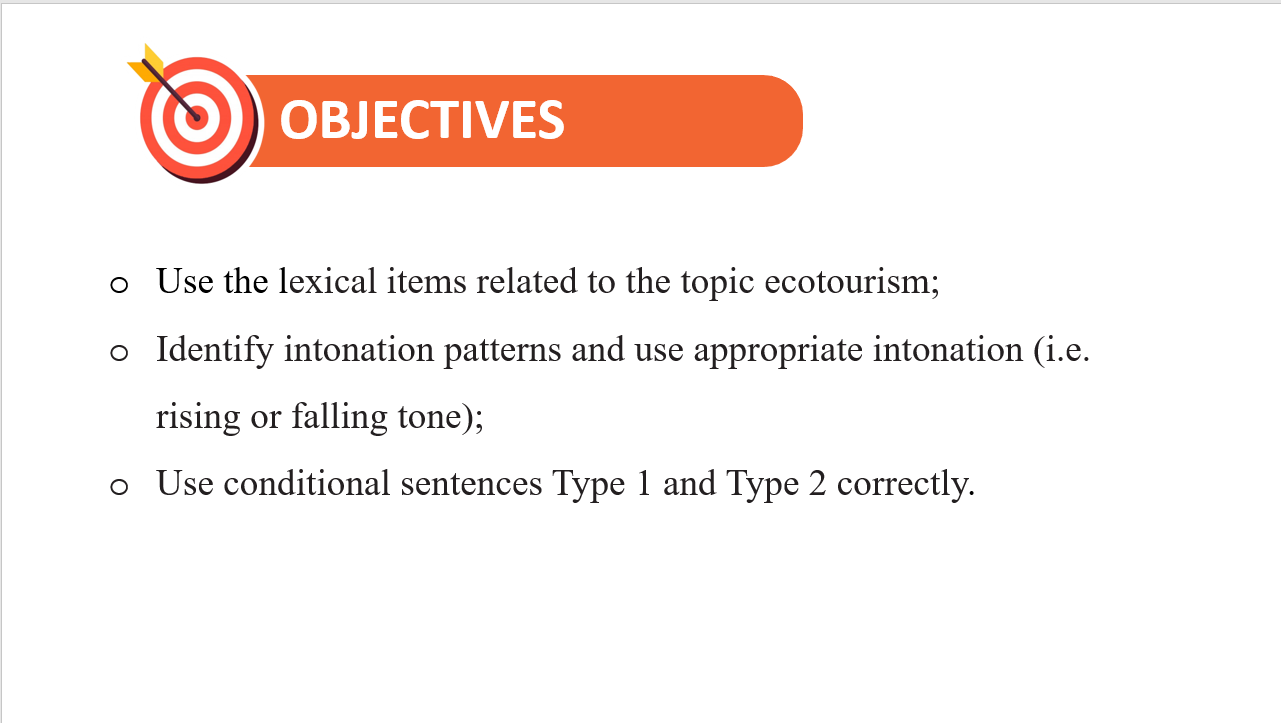
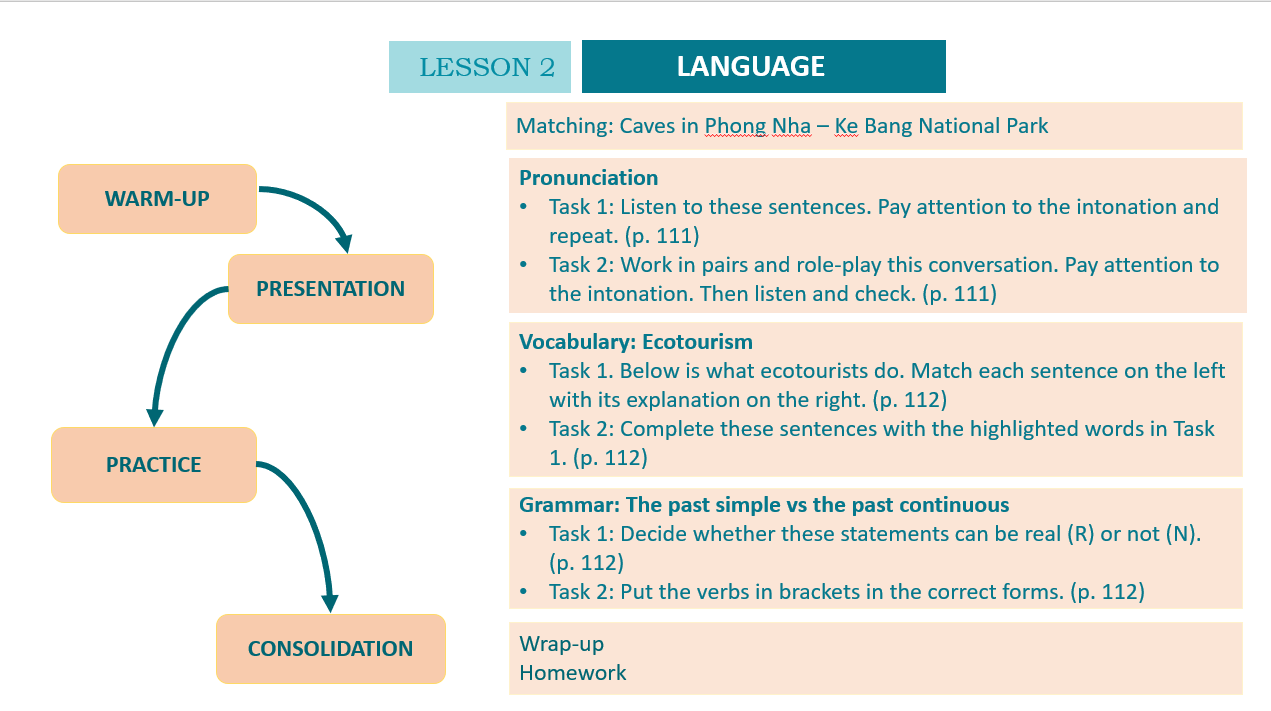
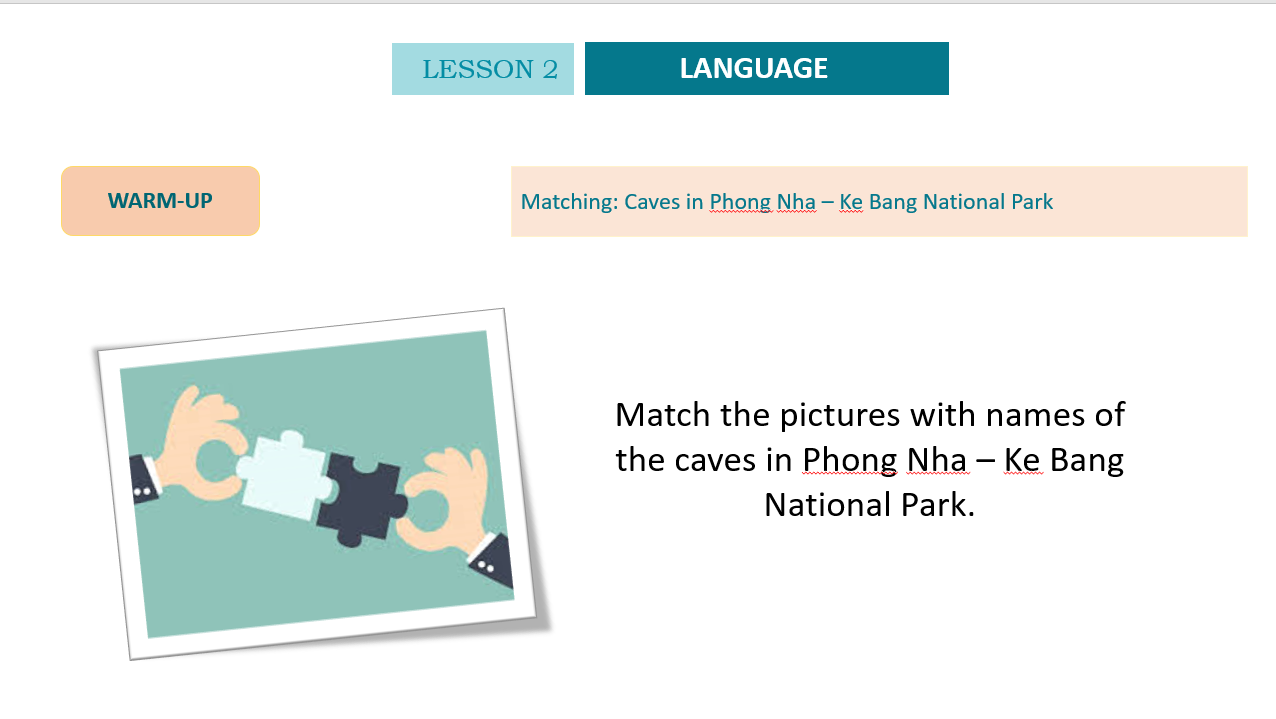
Tài liệu có 8 phần nhỏ: Getting Started, Language, Reading, Speaking, Listening, Writing, Communication and Culture, Looking back and Project trên đây trình bày tóm tắt 5 trang đầu của Giáo án POWERPOINT Unit 10: Ecotourism Tiếng Anh 10 Global Success.
Giáo án Tiếng anh 10 Unit 10 (Global Success): Ecotourism
Lesson 1: Getting started – An eco-friendly fieldtrip to Phong Nha Cave
I. OBJECTIVES
By the end of this lesson, students will be able to gain:
1. Knowledge
- An overview about the topic ecotourism;
- Words and phrases related to ecotourism;
2. Core competence
- Develop communication skills and awareness of tourism and their impact on the environment;
- Be collaborative and supportive in pair work and teamwork;
- Actively join in class activities.
3. Personal qualities
- Develop a sense of being an ecotourist;
- Be aware of tourism and their impact on the environment.
II. MATERIALS
- Grade 10 textbook, Unit 10, Getting started
- Computer connected to the Internet
- Projector/ TV/ pictures and cards
- sachmem.vn
Language analysis
|
Form |
Pronunciation |
Meaning |
Vietnamese equivalent |
|
1. stalactite (n) |
/ˈstæləktaɪt/ |
piece of rock hanging down from the roof of a cave |
nhũ đá, thạch nhũ, vú đá |
|
2. fieldtrip (n) |
/ˈfiːldˌtrɪp/ |
a visit made by students to study something away from their school or college |
chuyến tham quan |
|
3. packaging (n) |
/ˈpæk.ɪ.dʒɪŋ/ |
the materials in which objects are wrapped before being sold |
bao bì, giấy gói hàng |
Assumptions
|
Anticipated difficulties |
Solutions |
|
- Students may not know some words in the conversation. - Students may not know how to work in teams. |
- Provide students with some lexical items before listening and reading the conversation. - Give short, clear instructions and help if necessary. |
Board Plan
|
Date of teaching UNIT 10: ECOTOURISM Lesson 1: Getting started – An eco-friendly fieldtrip to Phong Nha Cave
* Warm-up: Brainstorming Task 1. Listen and read. Task 2: Correct the mistakes. Task 3: Put each phrase into the correct column. Task 4: Complete these sentences from Task 1. * Homework Choose a local tourist attraction and find information about it. |
III. PROCEDURES
Notes:
In each activity, each step will be represented as following
* Deliver the task
** Implement the task
*** Discuss
**** Give comments or feedback
|
Stage |
Stage aim |
Procedure |
||
|
WARM-UP |
- To activate students’ knowledge on the topic of the unit. - To create a lively atmosphere in the classroom. - To lead into the new unit
|
BRAINSTORMING * T asks Ss to brainstorm answers for the question: What would you like to do this summer vacation? ** Ss work in groups to do brainstorming. *** T and Ss discuss the answers. **** T provides suggested answers and focuses on the phrase “take part in an eco-tour” to lead in the topic of the unit. Suggested answer:
|
||
|
PRESENTATION |
To introduce some vocabulary related to the unit |
VOCABULARY * T asks Ss to look at the explanation and the photos to guess the meaning of new words. ** Ss say the Vietnamese meanings of the words. 1. stalactite (n): piece of rock hanging down from the roof of a cave 2. fieldtrip (n): a visit made by students to study something away from their school or college 3. packaging (n): the materials in which objects are wrapped before being sold *** Other Ss correct if the previous answers are incorrect. **** T shows the meanings, says the words aloud and asks Ss to repeat them. |
||
|
PRACTICE |
To introduce the unit topic. |
TASK 1. LISTEN AND READ. (P. 110) * T asks Ss to look at the picture (p. 110), the heading of the conversation and answer the questions:
* T then plays the recording twice, has Ss listen to the conversation, read along and underline words / phrases related to the environment in the conversation. ** Ss do the task individually. *** T puts Ss in pairs and asks them to compare the words and phrases they have underlined and discuss their meaning. **** T checks comprehension as a class. |
||
|
To check students’ comprehension of the conversation. |
TASK 2: READ THE CONVERSATION AGAIN. THEN FIND AND CORRECT A MISTAKE IN EACH SENTENCE BELOW. (P. 111) * T asks Ss to find a mistake in each sentence and correct it: ⮚ T asks them to identify and underline the key words in the sentences first. Then T has them read the conversation again and locate the part that contains the information for each sentence. ⮚ T has them compare the information in the conversation with each sentence to know which part of the sentence is incorrect, and how to correct it. ** Ss do the task individually. *** T has Ss work in pairs to discuss and compare their answers. **** T checks the answers as a class. ⮚ T has them call out the part of the sentence which is incorrect first. Then T asks them to give the corrections. ⮚ Finally, T has some students read the complete correct sentences. Suggested answers: 1. On an eco-friendly fieldtrip, tourists enjoy, explore and damage the environment. ? but not (OR: On an eco-friendly fieldtrip, tourists enjoy, explore and damage the environment. ? protect/ learn about) 2. Nam will take pieces of stalactites because they take a long time to form. ? will not / won’t 3. Mai will bring snacks with a lot of packaging on the trip. ? will not / won’t (OR: Mai will bring snacks with a lot of packaging on the trip. ? less) |
|||
|
To help students revise phrases related to ecotourism |
TASK 3: PUT EACH PHRASE INTO THE CORRECT COLUMN. (P. 111) * T has Ss read the phrases in the box and explains that these are things that tourists should do or shouldn’t on an eco-friendly fieldtrip. ** T asks Ss to sort the phrases into the columns of Dos and Don’ts. *** T puts Ss in pairs and asks them to compare their answers. ****T checks answers as a class and elicits the meaning of any words students don’t know or find hard to understand. Answers: Dos: explore the place, learn about the place Don’ts: damage the environment, leave litter behind |
|||
|
To help students identify conditional sentences Type 1 and Type 2. |
TASK 4: COMPLETE THESE SENTENCES FROM TASK 1. (P. 111) * T asks Ss to read the two incomplete sentences and focus attention on the word ‘if’, eliciting what kind of words are missing (verbs). ** T asks Ss to complete the sentences, using words from Task 1. *** T puts Ss in pairs and asks them to compare their answers. **** T checks the answers as a class. Answers: 1. add, will be 2. were, wouldn’t |
………………………………………….
………………………………………….
………………………………………….
Xem trước và mua tài liệu:
Xem thêm các chương trình khác:
- Giáo án Toán 10 Chân trời sáng tạo năm 2024 (mới nhất)
- Giáo án Hóa 10 Chân trời sáng tạo năm 2024 (mới nhất)
- Giáo án Vật lí 10 Chân trời sáng tạo năm 2024 (mới nhất)
- Giáo án Sinh học 10 Chân trời sáng tạo năm 2024 (mới nhất)
- Giáo án Lịch sử 10 Chân trời sáng tạo năm 2024 (mới nhất)
- Giáo án Tiếng Anh 10 Friends Global năm 2024 (mới nhất)
- Giáo án Ngữ Văn 10 Chân trời sáng tạo (mới nhất)
- Giáo án Toán 10 Cánh diều năm 2024 (mới nhất)
- Giáo án Hóa 10 Cánh diều năm 2024 (mới nhất)
- Giáo án Vật lí 10 Cánh diều năm 2024 (mới nhất)
- Giáo án Sinh học 10 Cánh diều năm 2024 (mới nhất)
- Giáo án Lịch sử 10 Cánh diều năm 2024 (mới nhất)
- Giáo án Địa lí 10 Cánh diều năm 2024 (mới nhất)
- Giáo án Tin học 10 Cánh diều năm 2024 (mới nhất)

